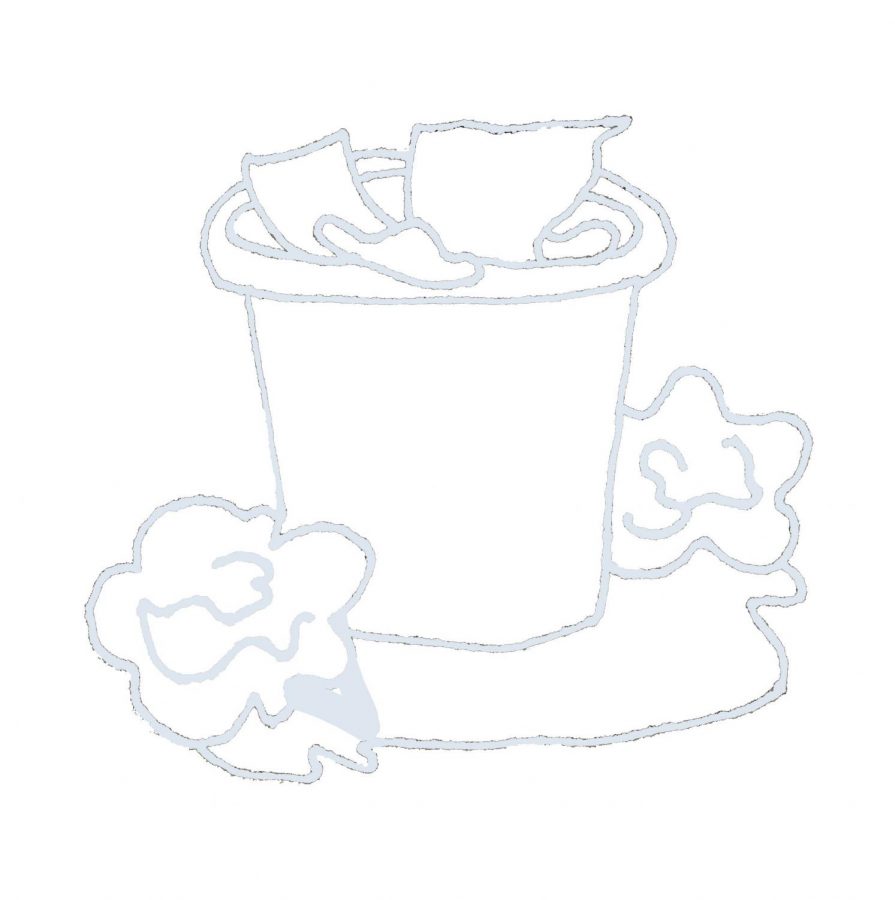Teachers Work Climate Change Conversations into Classes
Depth varies, but conversations prevail due to general acceptance, concern
December 9, 2019
Climate change is a constant topic of conversation ringing through the halls, but these conversations take many different forms. According to science teacher Will Bohrnsen, in freshman biology, conversations about climate change might look like a nonchalant passing comment about how the “balance between photosynthesis and cellular respiration on our planet is out of equilibrium because of the burning of fossil fuels and that why we end up in a situation where we have global warming.”
Contrastingly, in Bohrnsen’s Environmental Science class, students are “reading work from Elizabeth Rush, who’s our Otis author that’s coming to speak in April, and talking directly about the effects of climate change on coastal communities.” The Otis Environmental Authors Program, created after the death of Phillip Otis ‘91, brings an environmentally focused author to Blake every two years.
However, conversations about climate change are not limited to science classrooms. In social studies teacher, David Graham’s ‘85 International Relations class, “students play different countries, so we addressed ‘how do you address the question of climate change’ and our particular focus was whether or not…should fossil fuels be banned, should there be any incentives.”
On the other hand, social studies teacher and Director of Global Programs, Dion Crushshon ‘88’s experience with teaching about climate change provides a stark contrast from both Graham’s and Bohrnsen’s. Crushshon began his Global Theories Local Realities class with the topic of climate change. He expresses, “It’s something that I think is important that students learn about so it frustrates me that [for] many students, my class is the first time that they’re really talking about it. It’s something that I think we should, very intentionally be talking about in our science classes at an earlier age.”
Crushshon reflects on the emotional impact these lessons have had on him: “I got a little bit depressed actually while teaching it because it was just so much bad news, so I try to balance the doom and gloom with the hopeful solution orientation and recognizing people who are doing good work to address the issue.”
Matt Paterakis, Pre-k through 8th grade head of science, sheds light on how the younger members of the Blake community are educated about climate change: “We unpack all the science in middle school and the focus has really become over the years, because this has become such a polarized and political issue is, well let’s look at the data that these claims are based upon and let’s try to figure it out from that standpoint, examine our biases.”
Paterakis also highlights changes he would like to see in the community, “One thing that we need to absolutely have is environmental science has to become not an elective, it needs to become a compulsory class that every single person takes so that when you graduate with a Blake education, you understand climate science, you understand sustainability science, and you understand the human impact on the biosphere,” as well as taking individual action saying, “If you’re not creating to the problem, you’re creating part of the mitigation solution…that has a summative effect as a community, if we send that message that this independent school is really digging in hard on this, then that has this duplicating effect.”
There are rarely disagreements in the Upper School over the existence of climate change. Bohrnsen credits this to the fact that “we’ve had this conversation for long enough that this has just been something that’s been a normal part of the conversation for [students], so talking about climate change and just that general idea that climate change exists, is sort of normalized.”
Contrastingly, Paterakis speaks from his experience saying, “you have to confront the fact that there are going to be people in your class which have very different political views because we’re a microcosm of society and how to help them to understand ‘look we’re not examining right-wing, left-wing liberal, conservative, what we’re looking at, it doesn’t matter what your political persuasion is, this is what the science says, so how do we get there?”
Across all levels, teachers agree that as a community, we are not talking about climate change enough. Paterakis points to this when he says, “It’s not enough that a few people are interested in having this conversation. It has to be a front-burner for probably the rest of your lives because if you don’t pay attention to it… it’s going to continue to rise up in ways that are harder and harder to deal with.”
